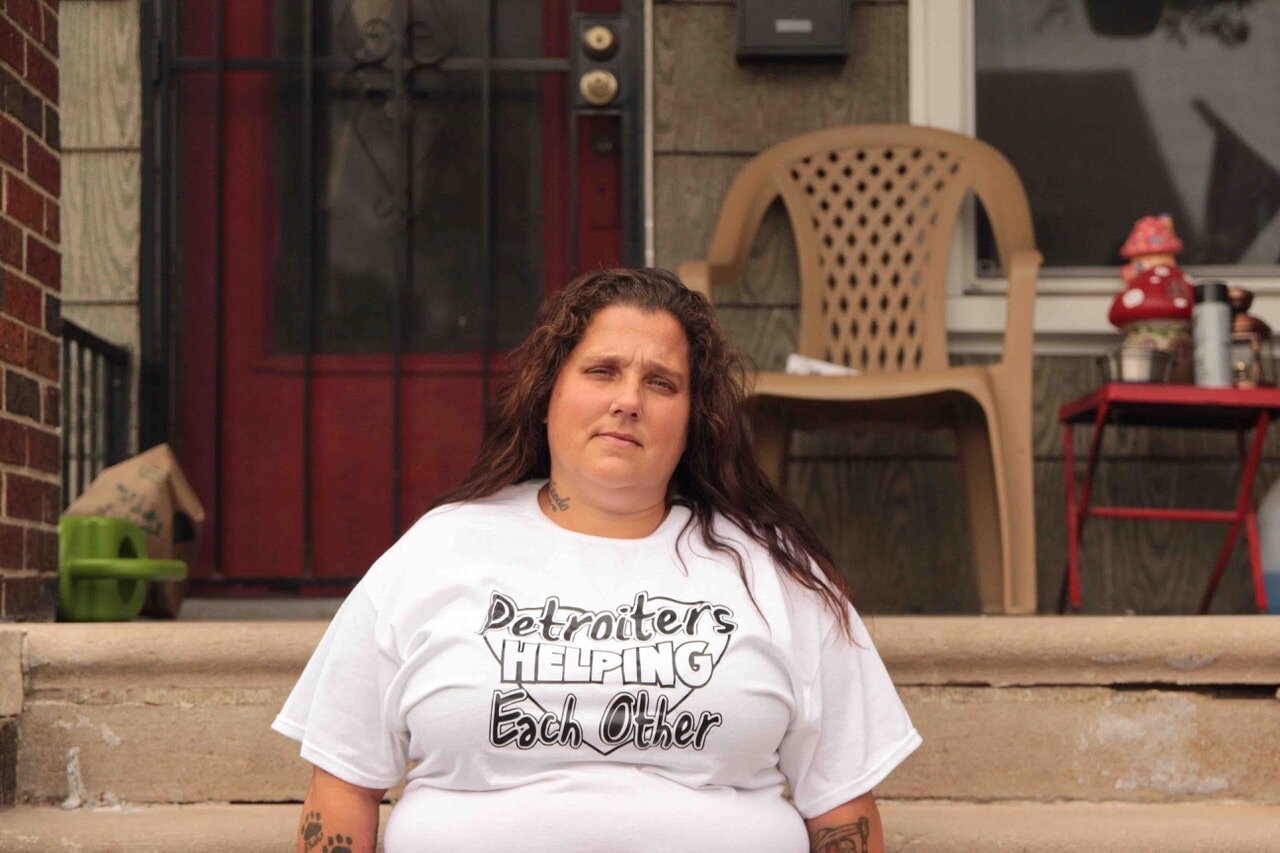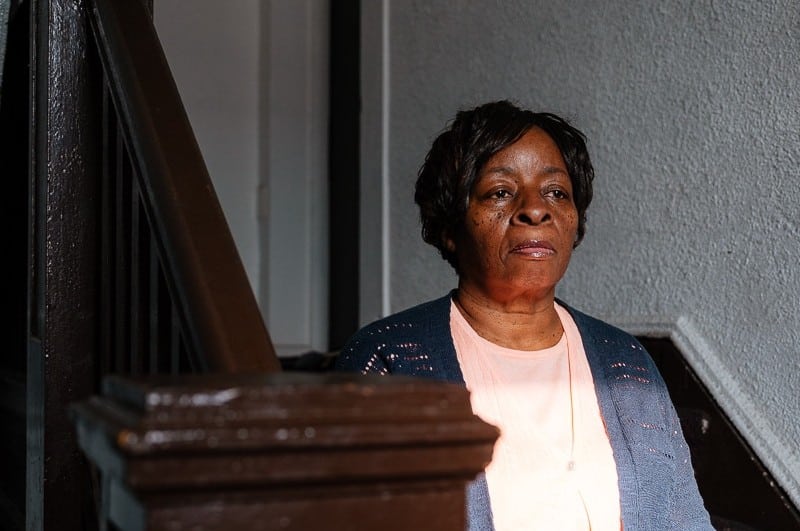Detroiters Helping Each Other: ‘It’s just straight groundwork.’
Staying rooted in the community is vital for Jessica M. Ramirez, who runs an operation in Detroit’s Springwells neighborhood to connect people to items and resources they need that someone else has to give.

Metro Detroit is blessed with a community of incredible people creating a better world for all of us. They range from highly professional funders and executives crafting strategies to ameliorate complicated social problems, to the hands-on staffers that carry out those plans, at organizations small and large.
And then there are the neighborhood heroes, the people who simply see a need in their fellow human beings and do their best to meet it with little more than a few donations and some creative thinking. They’re anchors of their communities, the first person everyone calls after a setback or a crisis because they’ll be able to cobble together resources and provide a hand up.
Jessica M. Ramirez is such a person. She started Detroiters Helping Each Other as a Facebook page in 2013, as a way to formalize community work she was already been doing in Southwest Detroit. The page’s name explains exactly what it does: put out requests for help or offer resources that can help others.
Ramirez’s inspiration is simple. “I was 14, homeless and pregnant and didn’t have any help, so over the years as I had my kids, I always had a networking system,” she says.
She became a person other people knew could find resources, and she uses social networking and her personal relationships to meet those needs.
It’s as simple as people calling her and asking if she knows someone who needs the nearly-new coat their son just grew out of or the couch they aren’t using, and her connecting them with someone she knows who needs just such a thing.
“Because I grew up having nothing, people would reach out to me and say ‘do you know anybody (who needs something)’, and I’d say ‘drop it off’.” She and her team keep a list of requests they have received and match them with donations as they come in. Anything that isn’t immediately needed goes on the side of her house and she puts out a call on the Facebook page for people to come get the items if they’re in need. Their model is based in simple, grassroots mutual aid.
“The thing I tell everybody is it’s the community taking care of each other,” Ramirez says. “It’s almost all Detroit (people): no grants, no state funding, no city (funds). It’s just straight ground work.”
Ramirez actually started the page with the intention of helping animals, and it’s still a big part of what Detroiters Helping Each Other does. Three weeks of the month, she and the team accept 10 pallets of donated pet food and supplies delivered to her house. People struggling to keep their animal friends fed pull up, team members ask how may animals they have and what they need, and members pop food and supplies right into the person’s trunk.
Eventually she branched out to finding food for people because she realized that people who were asking for help for their pets likely needed some themselves. The first year they provided Thanksgiving dinner for several families. They also host a community potluck regularly throughout the summer months, providing food and entertainment for children and a sense of non-judgmental, come-as-you-are fellowship for the adults.
It’s that openness that defines Detroiters Helping Each Other’s approach. Ramirez says the team who has evolved around her includes former gang members, people who have been incarcerated, and folks who have needed help themselves and now have something to give. Staying rooted in community is extremely important to her, she says, as a way to build trust with the people who come to her for help.
“If you haven’t actually survived down here and struggled, you don’t understand it,” she says. “A lot of people are scared to ask for help – ‘what if they call CPS on me?’ No, I’m not about that. We’re here to make their lives better before the system would get involved.”
That mindset extends to her “day job” as parent outreach coordinator at Bennett Elementary School. She’s organized coat drives, provided shoes for kids whose feet are literally bursting out of the ones they have, and sourced more than 70 air mattresses for students who needed them. With the sharp rise in prices for food and housing after the pandemic, many families have been forced to double up with friends or relatives and that can leave children without a bed of their own.
Although much of her work is focused on her Springwells neighborhood, Ramirez has attracted partners from beyond the city. Woodhaven Mayor Patricia Odette has become a valued supporter, providing soccer nets for Bennett and supplies for animals. Tittle Brothers Construction has also provided a lot of help, donating toys at the holidays.
Going forward, Ramirez says she would like to have a building, so that she can do assessments and help people who need temporary shelter, and to partner with the City of Detroit to expand the resources she can provide.
When that day comes, she still wants to keep her hands-on, personal approach.
“You get to interact (doing it this way), and when you become big and corporate you lose that. Don’t sit behind a desk. Be there in the field with all the blood, sweat and tears,” she says.
Resilient Neighborhoods is a reporting and engagement series examining how Detroit residents and community development organizations work together to strengthen local neighborhoods. It’s made possible with funding from The Kresge Foundation.




